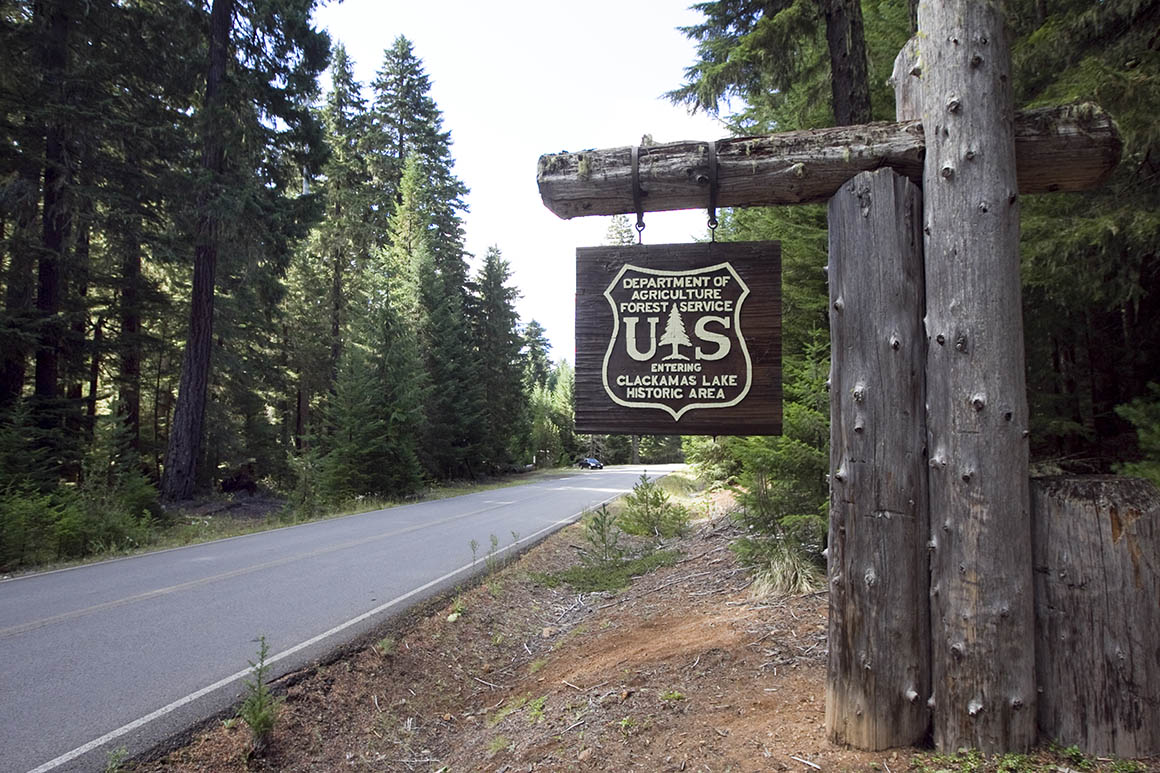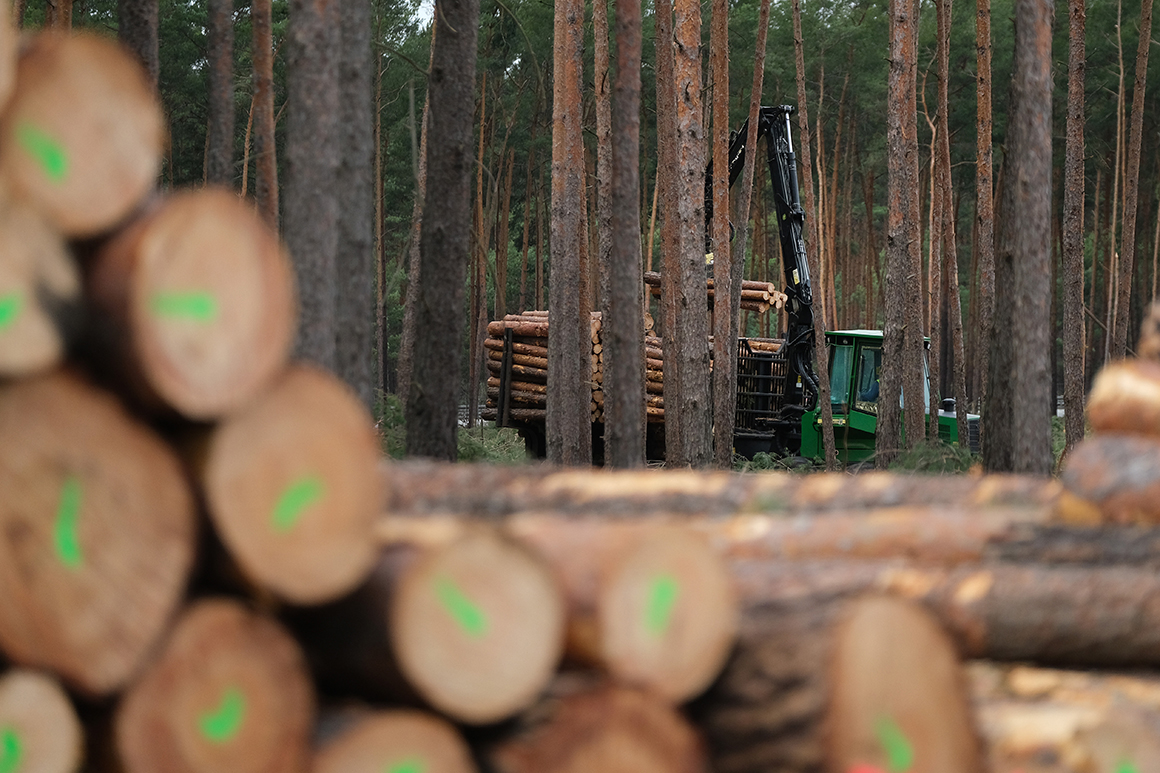
America needs millions of new trees each year for forests damaged by natural catastrophes, thinned by logging and developed to protect watersheds. But this year, many of the workers who do the planting are being barred from the U.S. by the Trump administration.
Seasonal temporary workers mainly from Mexico and South America perform most of the reforestation work in the U.S., entering the country in October each year for a six-month planting season.
But the White House last month suspended most seasonal temporary visas, known as H-2Bs, for the rest of the year in an effort to free up jobs for American workers as the country experiences record-high unemployment.
Now an entire planting season could be lost, leaving the U.S. with millions of fewer trees, forestry industry representatives warn. That could include work on the U.S. Forest Service’s own programs, which rely on contract labor to maintain federal forested lands.
Typically, only a handful of U.S. workers respond to listings seeking forestry crews.
“Virtually all reforestation is done by H-2B workers,” said Dan Bremer, a Georgia-based contractor whose company, AgWorks, places about 6,000 H-2B workers in forestry jobs across the country. “So without that program, there just won’t be any trees planted.”
That could have devastating consequences not just for environmental protection but also for the timber industry and fire prevention.
To fix the situation, lobbyists for the timber industry are pushing for the White House to issue an exemption for the sector, a decision they hope to be announced any day.
The White House did not respond to a request for comment.
The forestry industry has consistently depended on foreign workers because not enough U.S. residents apply for forestry jobs. In fiscal year 2019, the Department of Labor certified about 11,000 visas for forestry and conservation work. The entire program is capped at 66,000 workers across numerous occupations, mainly in landscaping and groundskeeping.
Last year, there were about 35,000 employees in the forestry and logging sector, doing work from falling trees to trucking timber harvests, according to the U.S. Bureau of Labor Statistics.
Before hiring from the H-2B pipeline, employers must first advertise for U.S. workers. But Bremer said that he rarely sees Americans willing to take the type of jobs he’s placed in the last 22 years seeking foreign guest workers.
Unemployment has been fairly low in recent years and most Americans are drawn to year-round work rather than seasonal forestry jobs, he said.
“They might be interested this year,” he said. “If they want the job, they get it. It’s pretty simple.”
Still, reforestation is labor-intensive work. Planters have to carry a shovel and haul sacks of 100 seedlings around their waists while navigating rough terrain and brutal winter weather. They must methodically bend over to insert as many as three hundred trees a day into holes they dig themselves.
Yet their work is invaluable to maintaining healthy ecosystems critical for supporting wildlife habitats. The forests also help ensure clean water, reduce soil erosion, and fight climate change through carbon capture. The forest industry is also a major part of local economies in states like Alaska and along the West coast.
A labor shortage would be another blow to an industry that has suffered from the pandemic and was already bracing for fewer trees to be planted this year.
Kathy LeCompte, owner of Brooks Tree Farms in Brooks, Ore., said that her farm has seen mass cancellations of seedling orders from customers worried about the safety of allowing planters onto their property or exposure while working.
So far, customers have canceled orders for at least 40,000 trees. The nursery’s income is down over $300,000 from the prior year, she said. Forestry operations have also had to shoulder the cost of protecting workers by implementing public health measures mandated by state officials like installing hand-washing stations, she added.
“We aren’t whining — we are lucky,” LeCompte said. “We are fortunate to work on a farm where distance, gloves, rain gear and eye protection is already the norm."
She urged the government to be more accommodating to the forestry sector. "If we could get workers, and government would stop micromanaging, even in this environment, we’d be fine.”
Landowners are also worried that a labor shortage could make it difficult to meet state replanting requirements. State law determines that harvested timber lands must be replanted within a few years.
In Oregon, for example, rules require at least 100 to 200 hundred new trees per acre survive within two years of logging.

In order to be profitable, landowners plant many more trees, typically about 400 seedlings per acre. If landowners don’t comply with reforestation requirements, the Oregon Department of Forestry can charge a $5,000 penalty per offense.
It’s not just private forestry companies that use H-2B labor. Even state and federal governments rely on crews of H-2B employees to maintain forests on public lands, such as Washington’s Department of Natural Resources, which contracts out much of its nursery and reforestation work.
No longer having foreign workers who also complete tasks like collecting cones, nurturing seedlings and controlling weeds “would be very problematic,” said Calvin Ohlson-Kiehn, assistant division manager for Washington’s State Lands Silviculture Program.
Washington state typically plants about five million seedlings a year on public lands and also supplies seedlings to landowners. Any disruption to the planting process, which begins years before a tree is placed into the ground, could mean that an expensive backlog would form. Seedlings typically run about 60 cents each, amounting to several million dollars annually for the department.
“You just can’t store seedlings for two years,” Ohlson-Kiehn said. “We would have to throw seedlings away you can’t plant.”
“There would be a whole bunch of compounding impacts — it would affect us as well as the rest of the forestry and agriculture industry," he said.
Source: politico.com
See more here: news365.stream






